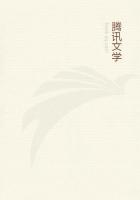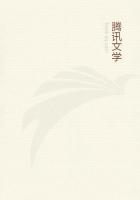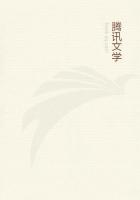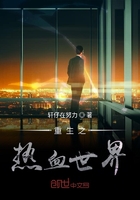"Yes, darling, we'll never speak of it again," he said. "That would be much wisest."Lady Ashbridge's funeral took place three days afterwards, down in Suffolk, and those hours detached themselves in Michael's mind from all that had gone before, and all that might follow, like a little piece of blue sky in the midst of storm clouds. The limitations of man's consciousness, which forbid him to think poignantly about two things at once, hedged that day in with an impenetrable barrier, so that while it lasted, and afterwards for ever in memory, it was unflecked by trouble or anxiety, and hung between heaven and earth in a serenity of its own.
The coffin lay that night in his mother's bedroom, which was next to Michael's, and when he went up to bed he found himself listening for any sound that came from there. It seemed but yesterday when he had gone rather early upstairs, and after sitting a minute or two in front of his fire, had heard that timid knock on the door, which had meant the opening of a mother's heart to him. He felt it would scarcely be strange if that knock came again, and if she entered once more to be with him. From the moment he came upstairs, the rest of the world was shut down to him; he entered his bedroom as if he entered a sanctuary that was scented with the incense of her love. He knew exactly how her knock had sounded when she came in here that night when first it burned for him: his ears were alert for it to come again. Once his blind tapped against the frame of his open window, and, though knowing it was that, he heard himself whisper--for she could hear his whisper--"Come in, mother," and sat up in his deep chair, looking towards the door. But only the blind tapped again, and outside in the moonlit dusk an owl hooted.
He remembered she liked owls. Once, when they lived alone in Curzon Street, some noise outside reminded her of the owls that hooted at Ashbridge--she had imitated their note, saying it sounded like sleep. . . . She had sat in a chintz-covered chair close to him when at Christmas she paid him that visit, and now he again drew it close to his own, and laid his hand on its arm. Petsy II.
had come in with her, and she had hoped that he would not annoy Michael.
There were steps in the passage outside his room, and he heard a little shrill bark. He opened his door and found his mother's maid there, trying to entice Petsy away from the room next to his. The little dog was curled up against it, and now and then he turned round scratching at it, asking to enter. "He won't come away, my lord," said the maid; "he's gone back a dozen times to the door."Michael bent down.
"Come, Petsy," he said, "come to bed in my room."The dog looked at him for a moment as if weighing his trustworthiness.
Then he got up and, with grotesque Chinese high-stepping walk, came to him.
"He'll be all right with me," he said to the maid.
He took Petsy into his room next door, and laid him on the chair in which his mother had sat. The dog moved round in a circle once or twice, and then settled himself down to sleep. Michael went to bed also, and lay awake about a couple of minutes, not thinking, but only being, while the owls hooted outside.
He awoke into complete consciousness, knowing that something had aroused him, even as three days ago when the telephone rang to summon him to his mother's deathbed. Then he did not know what had awakened him, but now he was sure that there had been a tapping on his door. And after he had sat up in bed completely awake, he heard Petsy give a little welcoming bark. Then came the noise of his small, soft tail beating against the cushion in the chair.
Michael had no feeling of fright at all, only of longing for something that physically could not be. And longing, only longing, once more he said:
"Come in, mother."
He believed he heard the door whisper on the carpet, but he saw nothing. Only, the room was full of his mother's presence. It seemed to him that, in obedience to her, he lay down completely satisfied. . . . He felt no curiosity to see or hear more. She was there, and that was enough.
He woke again a little after dawn. Petsy between the window and the door had jumped on to his bed to get out of the draught of the morning wind. For the door was opened.
That morning the coffin was carried down the long winding path above the deep-water reach, where Michael and Francis at Christmas had heard the sound of stealthy rowing, and on to the boat that awaited it to ferry it across to the church. There was high tide, and, as they passed over the estuary, the stillness of supreme noon bore to them the tolling of the bell. The mourners from the house followed, just three of them, Lord Ashbridge, Michael, and Aunt Barbara, for the rest were to assemble at the church. But of all that, one moment stood out for Michael above all others, when, as they entered the graveyard, someone whom he could not see said: "Iam the Resurrection and the Life," and he heard that his father, by whom he walked, suddenly caught his breath in a sob.
All that day there persisted that sense of complete detachment from all but her whose body they had laid to rest on the windy hill overlooking the broad water. His father, Aunt Barbara, the cousins and relations who thronged the church were no more than inanimate shadows compared with her whose presence had come last night into his room, and had not left him since. The affairs of the world, drums and the torch of war, had passed for those hours from his knowledge, as at the centre of a cyclone there was a windless calm.
To-morrow he knew he would pass out into the tumult again, and the minutes slipped like pearls from a string, dropping into the dim gulf where the tempest raged. . . .
He went back to town next morning, after a short interview with his father, who was coming up later in the day, when he told him that he intended to go back to his regiment as soon as possible. But, knowing that he meant to go by the slow midday train, his father proposed to stop the express for him that went through a few minutes before. Michael could hardly believe his ears. . . .

